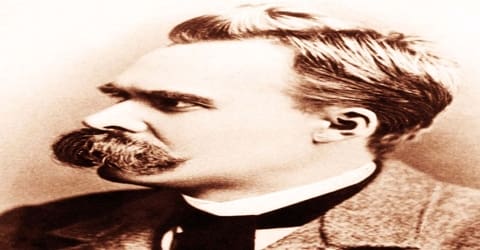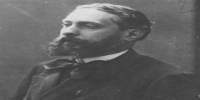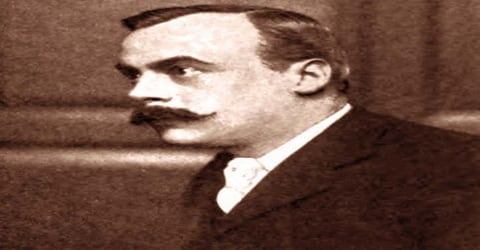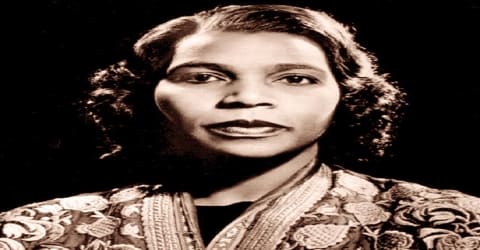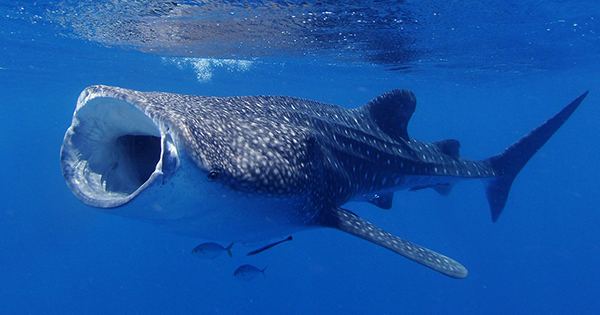Biography of Friedrich Nietzsche
Friedrich Nietzsche – German philosopher, cultural critic, composer, poet, philologist, and Latin and Greek scholar.
Name: Friedrich Wilhelm Nietzsche
Date of Birth: 15 October 1844
Place of Birth: Röcken, Lützen, Germany
Date of Death: 25 August 1900 (aged 55)
Place of Death: Weimar, Germany
Occupation: Philosopher, Poet, Composer
Father: Carl Ludwig Nietzsche
Mother: Franziska Oehler
Early Life
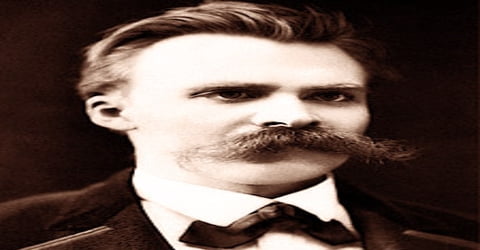
A German classical scholar, philosopher, and critic of culture, who became one of the most influential of all modern thinkers, Friedrich Nietzsche was born on 15 October 1844, and he grew up in the small town of Röcken (now part of Lützen), near Leipzig, in the Prussian Province of Saxony.
Nietzsche was widely known for his ideas like the death of God, perspectivism, the Übermensch, the eternal recurrence, and the will to power. He started his career as a classical philologist and at the age of 24 years was the youngest individual to hold the Chair of Classical Philology at the University of Basel. His writings mostly remained controversial and were often criticized for their anti-Christian faith. His work was later recognized and considered as carrying great personality development elements. It was said that German soldiers used to get a copy of Thus Spoke Zarathustra during World War I for inspiring themselves. Famous political leaders like Theodore Roosevelt, Adolf Hitler, Mussolini, Charles de Gaulle, and Richard Nixon read his writings and were influenced by his ideas. His writings also influenced many profound thinkers of the 20th century including Martin Heidegger, Jean-Paul Sartre, Leo Strauss, Albert Camus, Michel Foucault, Jacques Derrida, and Gilles Deleuze.
In 1889 at age 44, Nietzsche suffered a collapse and afterward, a complete loss of his mental faculties. He lived his remaining years in the care of his mother until her death in 1897 and then with his sister Elisabeth Förster-Nietzsche. Nietzsche died in 1900.
His attempts to unmask the motives that underlie traditional Western religion, morality, and philosophy deeply affected generations of theologians, philosophers, psychologists, poets, novelists, and playwrights. He thought through the consequences of the triumph of the Enlightenment’s secularism, expressed in his observation that “God is dead,” in a way that determined the agenda for many of Europe’s most-celebrated intellectuals after his death. Although Nietzsche was an ardent foe of nationalism, anti-Semitism, and power politics, his name was later invoked by fascists to advance the very things he loathed.
Childhood, Family and Educational Life
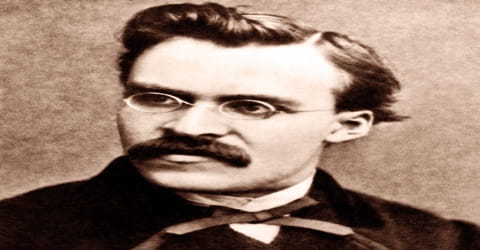
Friedrich Nietzsche, in full Friedrich Wilhelm Nietzsche (German: ˈfʁiːdʁɪç ˈvɪlhɛlm ˈniːtʃə), was born on 15 October 1844, in a small town called Röcken, located near Leipzig, in the Prussian Province of Saxony. His father, Carl Ludwig Nietzsche, was a Lutheran pastor in Röcken. His mother’s name was Franziska nee Oehler. Nietzsche was the eldest of his parents’ three children. Next to him was his sister, Therese Elisabeth Alexandra Nietzsche, who in later years became anti-Semitic. The third sibling was a brother named Ludwig Joseph.
Nietzsche’s father died from a brain ailment in 1849. The family then moved to Naumburg, where they lived with Nietzsche’s maternal grandmother and his father’s two unmarried sisters. After the death of Nietzsche’s grandmother in 1856, the family moved into their own house, now Nietzsche-Haus, a museum, and Nietzsche study center.
In 1854, Friedrich Nietzsche was admitted to Domgymnasium in Naumburg, studying there till 1858. Thereafter, he entered ‘Schulpforta’, an internationally famous boarding school, on scholarship. According to most scholars, he got the admission because his father, a pastor, was no more. At Schulpforta, apart from studying classical languages like Greek, Latin, Hebrew, French, and German, he also studied religion, history, natural sciences and mathematics. Moreover, he became acquainted with works of non-conformist writers through private reading. During this period, he seemed to have suffered from certain confusion. In 1862, Nietzsche wrote an essay entitled, ‘Fate and History’, arguing that historical research did not corroborate with the central teachings of Christianity. At the same time, he was profoundly affected by ‘Life of Jesus’, written by David Strauss.
After graduation in September 1864, Nietzsche commenced studies in theology and classical philology at the University of Bonn with the hope of becoming a minister. After one semester (and to the anger of his mother), he stopped his theological studies and lost his faith. In June 1865, at the age of 20, Nietzsche wrote to his sister Elisabeth, who was deeply religious, a letter regarding his loss of faith.
In 1865, Nietzsche began to study philology with Friedrich Wilhelm Ritschl. But at the end of his second semester, when Ritschi was forced to resign from his post and move to Leipzig, Nietzsche also moved with him. Prospering under Ritschl’s tutelage, he soon began to publish a number of papers. Around this time, he began to study the works of Arthur Schopenhauer, which awakened in him an interest in philosophy. ‘History of Materialism’, written by Friedrich Albert Lange, which he first read in 1866, also had a tremendous impact on him.
In 1867, Nietzsche signed up for one year of voluntary service with the Prussian artillery division in Naumburg. He was regarded as one of the finest riders among his fellow recruits, and his officers predicted that he would soon reach the rank of captain. However, in March 1868, while jumping into the saddle of his horse, Nietzsche struck his chest against the pommel and tore two muscles in his left side, leaving him exhausted and unable to walk for months. Consequently, Nietzsche turned his attention to his studies again, completing them in 1868 and meeting with Richard Wagner for the first time later that year.
Personal Life
Friedrich Nietzsche did not marry. He proposed to Lou Salomé, a Russian student, three times, but his proposal was rejected each time. There is a theory that blamed Salomé’s view on sexuality as one of the reasons for her alienation from Nietzsche. As articulated in the 1898 novella Fenitschka, she viewed the idea of sexual intercourse as prohibitive and marriage as a violation, with some suggesting that they indicated sexual repression and neurosis. Some modern scholars also believe that he was homosexual, but others dismiss this view.
Nietzsche had a close bond with his sister, Therese Elisabeth Alexandra Förster-Nietzsch, who used to look after him. Later, as she got married to Bernhard Förster, and developed an anti-Semitic mindset, there was a rift between the two.
There is the claim that Nietzsche’s homosexuality is widely known in the Vienna Psychoanalytic Society, with Nietzsche’s friend Paul Deussen claiming that the philosopher never “touched a woman”. Other scholars have argued that Köhler’s sexuality-based interpretation is not helpful in understanding Nietzsche’s philosophy. However, there are also those who stressed that, if Nietzsche preferred men with this preference constituting his psycho-sexual make-up but could not admit his desires to himself, it meant he acted in conflict with his philosophy.
On 3 January 1889, Nietzsche had a mental breakdown, originally diagnosed as tertiary syphilis. It is said that he saw a horse being flogged in Turin and running to save it, he threw himself around its neck. What happened thereafter is not known, but he was found loitering on the road. By then, his sister had left for South America. Therefore, his friends arranged to bring him back to Basel. In March 1890, his mother transferred him to a clinic in Jena, subsequently bringing him back to Naumburg in May 1890, looking after him at home. Nietzsche’s sister returned in 1893 and immediately took control of his unpublished works, rewriting them to suit her anti-Semitic ideology, creating ‘Nietzsche Achieve’ in 1894. After their mother’s death in 1897, she had him transferred to Weimer, where she allowed visitors to meet uncommunicative Nietzsche.
Career and Works
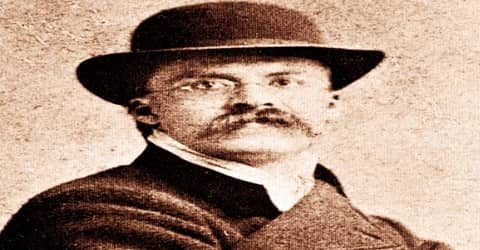
When a professorship in classical philology fell vacant in 1869 in Basel, Switzerland, Ritschl recommended Friedrich Nietzsche with unparalleled praise. He had completed neither his doctoral thesis nor the additional dissertation required for a German degree, yet Ritschl assured the University of Basel that he had never seen anyone like Nietzsche in 40 years of teaching and that his talents were limitless. Also at his Ritschi’s insistence, the University of Leipzig conferred the doctoral degree on Nietzsche, basing their decision on his published papers. They did not take any further examination.
Before he moved to Basel in 1869, Friedrich Nietzsche gave up his Prussian citizenship, remaining stateless for the rest of his life. Initially, he was appointed an extraordinary professor of classical philology, being promoted to the post of full professor in the following year. During this period, he developed close friendship with Richard Wagner and his wife Cosima, becoming a frequent guest at their villa. Maybe under their influence, he published his first major work, ‘Greek Music Drama’ in 1870.
Nietzsche’s 1870 projected doctoral thesis, Contribution toward the Study and the Critique of the Sources of Diogenes Laertius (Beiträge zur Quellenkunde und Kritik des Laertius Diogenes), examined the origins of the ideas of Diogenes Laërtius. Though never submitted, it was later published as a Gratulationsschrift (congratulatory publication) at Basel. Before moving to Basel, Nietzsche renounced his Prussian citizenship: for the rest of his life, he remained officially stateless.
Nietzsche obtained leave to serve as a volunteer medical orderly in August 1870, after the outbreak of the Franco-German War. Within a month, while accompanying transport of wounded, he contracted dysentery and diphtheria, which ruined his health permanently. He returned to Basel in October to resume a heavy teaching load, but as early as 1871 ill health prompted him to seek relief from the stultifying chores of a professor of classical philology; he applied for the vacant chair of philosophy and proposed Rohde as his successor, all to no avail. In spite of his heavy teaching schedule and ill health, Nietzsche continued to write. Sometime in April 1871, he submitted the manuscript of his first major work, ‘Die Geburt der Tragödie aus dem Geiste der Musik’ (The Birth of Tragedy from the Spirit of Music).
In 1872, Nietzsche published his first book, The Birth of Tragedy. However, his colleagues within his field, including Ritschl, expressed little enthusiasm for the work in which Nietzsche eschewed the classical philologic method in favor of a more speculative approach. In his polemic Philology of the Future, Ulrich von Wilamowitz-Moellendorff dampened the book’s reception and increased its notoriety. In response, Rohde (then a professor in Kiel) and Wagner came to Nietzsche’s defense. Nietzsche remarked freely about the isolation he felt within the philological community and attempted unsuccessfully to transfer to a position in philosophy at Basel instead.
In 1873, Nietzsche wrote ‘On Truth and Lie’, but it was not published until 1896. Also in 1873, he started working on ‘Philosophie im tragischen Zeitalter der Griechen’ (Philosophy in the Tragic Age of the Greeks), but left it unfinished. His 1874 book, ‘We Philologists’ was also left unpublished. Between 1873 and 1876, he published four separate long essays: “David Strauss: the Confessor and the Writer”, “On the Use and Abuse of History for Life”, “Schopenhauer as Educator” and “Richard Wagner in Bayreuth”. These four later appeared in a collected edition under the title Untimely Meditations. The essays shared the orientation of a cultural critique, challenging the developing German culture along lines suggested by Schopenhauer and Wagner.
During this time in the circle of the Wagners, Nietzsche met Malwida von Meysenbug and Hans von Bülow. He also began a friendship with Paul Rée, who in 1876 influenced him into dismissing the pessimism in his early writings. However, he was deeply disappointed by the Bayreuth Festival of 1876, where the banality of the shows and baseness of the public repelled him. He was also alienated by Wagner’s championing of “German culture”, which Nietzsche felt a contradiction in terms as well as by Wagner’s celebration of his fame among the German public. All this contributed to his subsequent decision to distance himself from Wagner.
Nietzsche’s health had never been good; but by 1877 he became seriously ill, suffering from unrelenting pain and being virtually blind. Taking time off, he now set up a home with his sister and his past student, Johann Heinrich Köselitz, better known as Peter Gast. During this period, Gast began to act as his secretary, taking dictation and helping out in other ways. In 1878, Nietzsche published ‘Menschliches, Allzumenschliches: Ein Buch für freie Geister’ (Human, All Too Human: A Book for Free Spirits). It was his first work to be written in the aphoristic style.
Having requested and received a sick leave, Nietzsche in 1877 set up a house with his sister and his friend Peter Gast (Johann Heinrich Köselitz), and in 1878 his aphoristic Menschliches, Allzumenschliches (Human, All-Too-Human) appeared. Because his health deteriorated steadily, he resigned his professorial chair on June 14, 1879, and was granted a pension of 3,000 Swiss francs per year for six years. After resigning from his job, Nietzsche lived in near isolation. Financed by his pension from Basel and aid from his friends, he now started moving around in Italy and Switzerland, publishing a number of books.
‘Morgenröte – Gedanken über die moralischen Vorurteile’ (The Dawn), published in 1881, was his first important work of this period. In the following year, Nietzsche had ‘Die fröhliche Wissenschaft‘(The Gay Science) published. His famous quote, ‘Gott ist tot’ (God is Dead), first appeared in this work. From 1882, as his health worsened, he started taking a huge quantity of opium; but it did not help. In 1883, he tried to obtain a professorship at the University of Leipzig; but because of his views on Christianity, it was denied to him. Nietzsche was now unemployable and without many friends. Going into seclusion, he wrote ‘Also sprach Zarathustra: Ein Buch für Alle und Keinen’ (Thus Spoke Zarathustra: A Book for All and None), a philosophical novel, composed in four parts between 1883 and 1885. In it he elaborated his idea on the death of God, an idea he introduced in ‘The Dawn’.
As with most of his works, it received little attention. His attempts to set forth his philosophy in more-direct prose, in the publications in 1886 of Jenseits von Gut und Böse (Beyond Good and Evil) and in 1887 of Zur Genealogie der Moral (On the Genealogy of Morals), also failed to win a proper audience. In addition, he issued second editions of ‘The Birth of Tragedy’, ‘Human, All Too Human’, ‘The Dawn’, and ‘The Gay Science’, placing the contents more coherently and adding new prefaces to them.
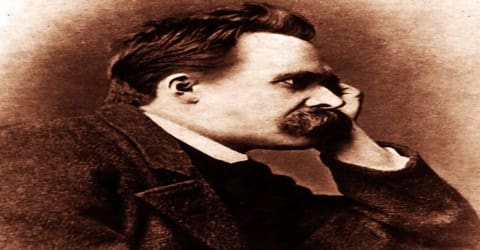
Although Nietzsche had previously announced at the end of On the Genealogy of Morality a new work with the title The Will to Power: Attempt at a Revaluation of All Values, he eventually seems to have abandoned this idea and instead used some of the draft passages to compose Twilight of the Idols and The Antichrist in 1888.
Nietzsche wrote and published Der Fall Wagner (The Case of Wagner) and wrote a synopsis of his philosophy, Die Götzen-Dämmerung (Twilight of the Idols), Der Antichrist (The Antichrist), Nietzsche contra Wagner, and Ecce Homo, a reflection on his own works and significance. Twilight of the Idols appeared in 1889; The Antichrist and Nietzsche contra Wagner was not published until 1895, the former mistakenly as book one of The Will to Power; and Ecce Homo was withheld from publication until 1908, 20 years after its composition.
Death and Legacy
In 1898 and 1899, Nietzsche suffered at least two strokes, which left him unable to walk or speak. In the middle of August 1900, he contracted pneumonia, suffering another stroke sometime in the night of 24-25 August.
Friedrich Nietzsche died at about noon on 25 August 1900. Elisabeth had him buried beside his father at the church in Röcken bei Lützen. His friend and secretary Gast gave his funeral oration, proclaiming: “Holy be your name to all future generations!” His unfinished notes were later edited by her sister and published as ‘Der Wille zur Macht’ (The Will to Power).
’Thus Spoke Zarathustra’, one of Nietzsche’s most celebrated works, records the imaginary travels and speeches of Zarathustra, a namesake of Zaraϑuštra, the founder of Zoroastrianis. The works elaborate ideas like “eternal recurrence of the same”, “death of God”, and the “prophecy” of the Übermensch, already introduced in his previous works. ‘Twilight of the Idols’ is another of Nietzsche’s important works. In it, he not only criticized the German culture of that time as rather crude and nihilistic but also the British, French and Italian personalities, who possessed similar views. Instead, he applauded people like Caesar, Napoleon, Goethe, Thucydides, and the Sophists.
Because of Nietzsche’s evocative style and provocative ideas, his philosophy generates passionate reactions. His works remain controversial, due to their varying interpretations and misinterpretations. In the Western philosophical tradition, Nietzsche’s writings have been described as the unique case of free revolutionary thought, that is, revolutionary in its structure and problems, although not tied to any revolutionary project. His writings have also been described as a revolutionary project in which his philosophy serves as the foundation of a European cultural rebirth.
Friedrich-Nietzsche-Preis, a German literary award established in 1996, continues to carry his legacy. Nietzsche-Haus, where he spent his childhood in Naumburg, has now been turned into a museum.
Information Source:
